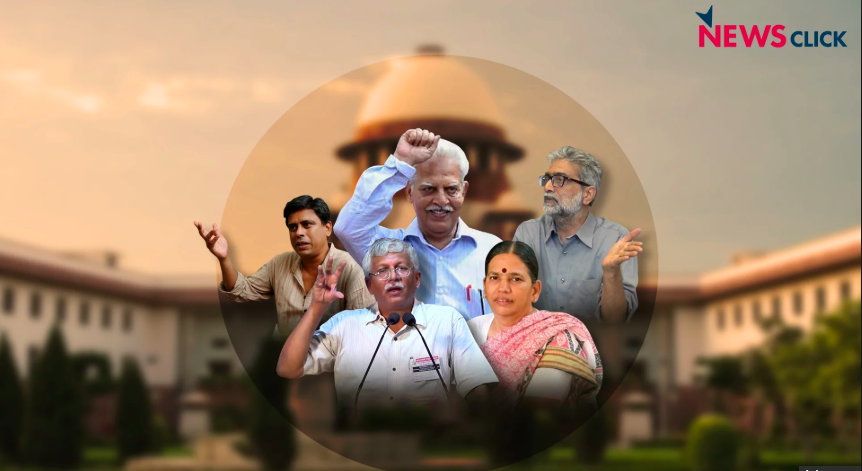Both decisions did not go into merits, but granted the accused time.
After the Delhi High Court set aside the Chief Metropolitan Magistrate’s (CMM) Order authorising Gautam Navlakha’s transit remand, the Maharashtra government’s comments on September 28 seem premature. Maharashtra Chief Minister Devendra Fadnavis reportedly said that the Supreme Court had vindicated the Maharshtra government and the police. This came after the Supreme Court’s decision on the petition filed by Romila Thapar, Prabhat Patnaik, Devaki Jain, Satish Deshpande and Maja Daruwala.
The original petition sought an independent probe, an explanation from the Maharashtra government and the release of Sudha Bharadwaj, Gautam Navlakha, Vernon Gonsalves, Arun Ferreira, and Varavara Rao. But, it was quickly questioned on the basis of the petitioner’s locus standi in the matter. Subsequently, all five persons, on whose behalf the petition had been filed, impleaded themselves in the matter, and modified the relief sought.
The modified relief was for a Court-monitored independent investigation on the basis of all the First Information Reports (FIRs) filed in connection with the Bhima Koregaon violence – including those against Sambhaji Bhide and Milind Ekbote. The impleaded petitioners also sought for all the electronic gadgets seized in the raids be forensically examined outside Maharashtra and directions for the accused persons’ release.
The Supreme Court’s decision in the matter was divided 2:1. The majority decision rejected the notion that the accused can choose which agency will investigate allegations against them. The majority did not comment on the aspect of the FIRs against Ekbote and Bhide as the matter was already being pursued in the Bombay High Court. However, concerning the accused person’s release, the majority held that the matter should be taken up in an appropriate Court. For this, the majority granted the accused four weeks of house arrest to pursue the appropriate remedy.
Justice Chandrachud’s dissent, on the other hand, was scathing with regard to the police and the arrests. However, what he granted the accused was three weeks of house arrest and a Court-monitored Special Investigation Team (SIT). The majority decision was hailed by those ideologically opposed to the arrested persons. While those opposed to the Bhratiya Janata Party government, hailed Justice Chandrachud’s dissenting opinion.
Though the majority decision did not pass any directions to constitute a SIT, they did give the accused four weeks of house arrest to pursue appropriate legal remedies in the appropriate court. On the other hand, Justice Chandrachud’s dissenting opinion gave the accused three weeks under house arrest, and constituted a SIT.
It was in the light of the Supreme Court’s majority decision that on Monday, Gautam Navlakha was freed by the Delhi High Court. The High Court’s Order set aside the transit remand granted by the CMM. This was on the basis that since all the documents provided by the police were in Marathi, it was quite apparent that the learned CMM could not have been able to read their contents. Hence, the CMM would be unable to determine whether there was even a prima facie case to justify the transit remand. The High Court also interpreted the four-week period of house arrest mandated by the Supreme Court in this case to mean until the appropriate remedy is obtained, hence ended Navlakha’s detention. What the Order did not do was to bar the Maharashtra police from moving a fresh application for a transit remand.
Despite the jubilation following the High Court’s Order, the hard reality is that a little has changed. The Supreme Court’s majority decision and the Delhi High Court’s Order have done nothing more than grant the accused time. However, the government too has been granted time to pursue the matter.
Courtesy: Newsclick.in

